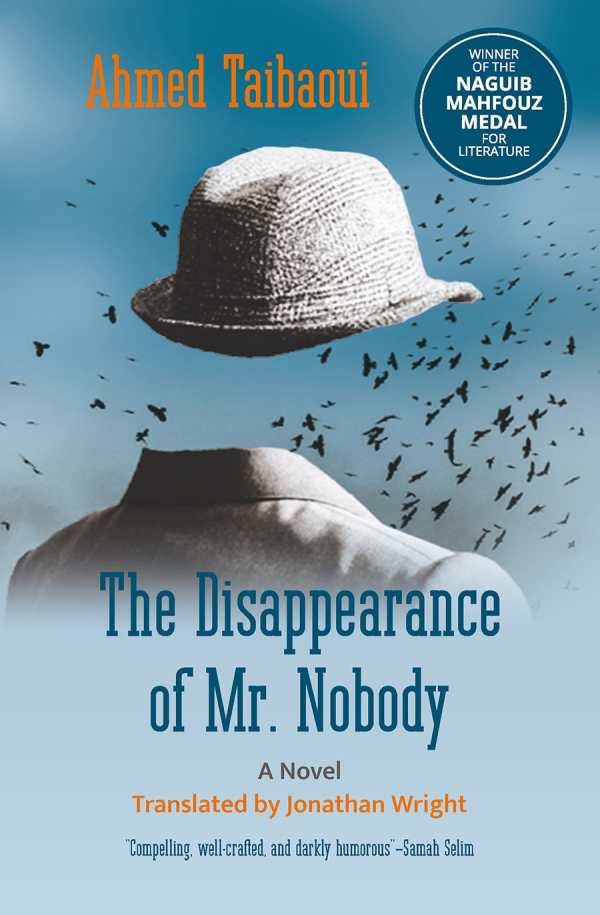The Disappearance of Mr. Nobody
Ahmed Taibaoui’s literary novel The Disappearance of Mr. Nobody is about the crime and poverty-ridden underside of Algeria.
The novel is split into two parts. Its first half follows an unnamed, impoverished, reclusive man, Mr. Nobody, who cares for his friend Mourad’s dying father. One day, when the father’s death looks imminent, Mr. Nobody disappears, forcing many in the community to critique the life he led, as well as his existence. The second half of the story follows Rafik, a detective tasked with locating Mr. Nobody because of his potential role in Mourad’s father’s death. Where the first section’s prose takes the confessional tone of diary entries, where Mr. Nobody reveals his deepest desires and fears, the second act is structured like a crime novel.
Close reading of the text is rewarded, as much of the action occurs between the lines. A minor character commits suicide and one is murdered, both occurring without explicit explanation. However, sections that relate the story to Mr. Nobody provide the crucial motives for their demises. And the patriarchal, degenerate sides of society and religion are exposed, along with calls to fix both. This is captured in a scene where Mr. Nobody rents a room to an imam who’s wanting to perform an exorcism only to find him having an extramarital affair, which Mr. Nobody denounces. Men take advantage of the weak for personal gain throughout.
The book’s translation is close, with words like “schoolmarm” and “carouser” arising; a phrase about being poor comes out as “I’m as broke as a gambler who’s lost his shirt.” Some terms, as with the café owner’s name (Mubarak, meaning “happy”), are left untranslated.
The Disappearance of Mr. Nobody is a thought-provoking novel in which human nature is explored through the Algerian working class.
Reviewed by
George Hajjar
Disclosure: This article is not an endorsement, but a review. The publisher of this book provided free copies of the book to have their book reviewed by a professional reviewer. No fee was paid by the publisher for this review. Foreword Reviews only recommends books that we love. Foreword Magazine, Inc. is disclosing this in accordance with the Federal Trade Commission’s 16 CFR, Part 255.

